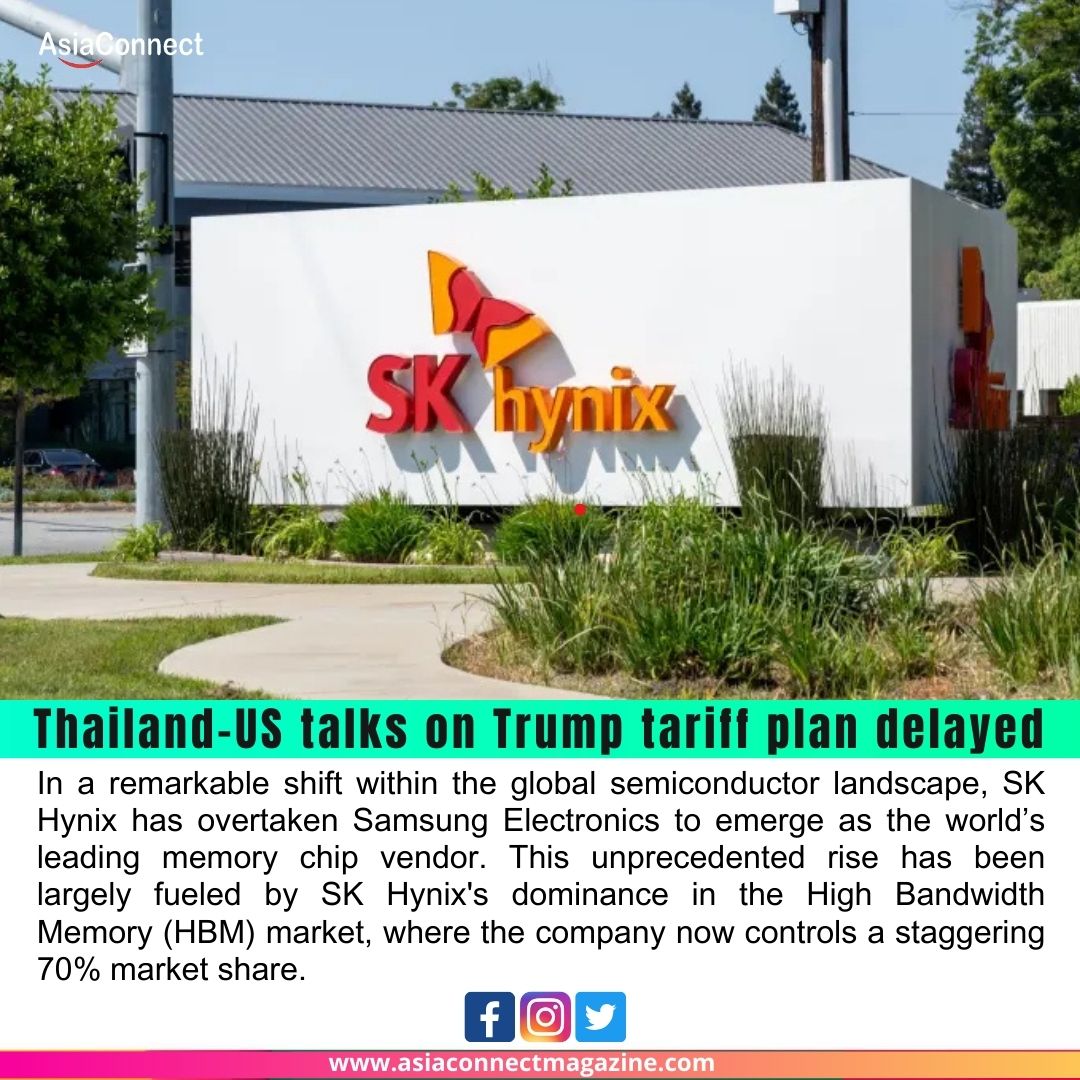In a remarkable shift within the global semiconductor landscape, SK Hynix has overtaken Samsung Electronics to emerge as the world’s leading memory chip vendor. This unprecedented rise has been largely fueled by SK Hynix’s dominance in the High Bandwidth Memory (HBM) market, where the company now controls a staggering 70% market share.
The milestone marks a significant turning point in the fierce competition between the two South Korean tech giants, especially in an era where AI and high-performance computing (HPC) are driving an explosive surge in demand for faster, more efficient memory solutions.
The Rise of SK Hynix in the HBM Arena
SK Hynix’s leap ahead of Samsung comes primarily on the back of its aggressive investment and innovation in the HBM segment, a type of high-speed memory critical for AI workloads and GPU-driven computing environments. The company’s ability to deliver cutting-edge HBM3 and HBM3E solutions has made it the preferred supplier for major tech firms like Nvidia, a leading name in AI and graphics processing units (GPUs).
Nvidia’s soaring demand for AI chips — particularly for use in data centers and AI training models — has led to a parallel increase in the demand for high-performance memory, cementing SK Hynix’s position as a strategic partner in the global tech supply chain.
Samsung’s Struggle and the Market Dynamics
While Samsung has long been a dominant force in the DRAM and NAND flash memory markets, it has fallen behind in the race to lead the specialized HBM segment. Reports suggest that Samsung faced technical challenges in scaling its latest HBM offerings to meet AI-driven performance standards, which allowed SK Hynix to grab market share at a crucial time.
SK Hynix’s ability to meet performance benchmarks and deliver reliable, high-speed memory has given it a clear edge in negotiations with hyperscalers and chipmakers who are racing to power the next generation of AI models and advanced computing applications.
AI Boom Driving Memory Market Growth
The meteoric rise in demand for AI services — from generative AI models like ChatGPT to enterprise-level machine learning solutions — has significantly reshaped memory chip requirements globally. Traditional memory is no longer sufficient; enterprises are looking for memory solutions that can support higher bandwidth and energy efficiency, making HBM a key technology of the future.
As a result, SK Hynix’s proactive strategy in adopting next-gen memory formats and scaling production rapidly has not only boosted its revenue but also its global reputation.
Looking Ahead
With AI adoption set to grow even further in the coming years, the demand for HBM and other advanced memory types will only intensify. SK Hynix’s success in capturing the lion’s share of this market suggests it may continue to outpace competitors if it maintains its technological edge and meets the stringent quality standards of global AI leaders.
For now, SK Hynix’s historic overtaking of Samsung symbolizes more than just a market shakeup—it highlights how innovation, timing, and strategic partnerships are reshaping the future of the memory industry.





